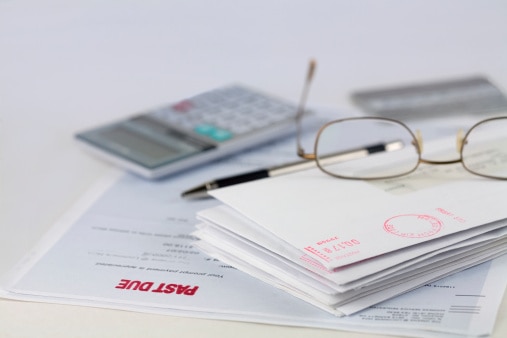If you’re struggling to pay your bills or you’re in a pinch, you may wonder if you can pay bills with a credit card.
While most people prefer to pay their bills in cash (or from their bank account), credit cards can also be a useful tool to help you take care of expenses, as long as you do it responsibly.
Read on to learn more about paying bills by credit card so you can decide if this might be right for you.
Can You Pay Bills With a Credit Card?
Paying your bills using a credit card is possible, but it often depends on which bill you need to pay. For example, some landlords don’t accept rent payments through credit cards.
Other than rent and mortgage, most companies allow credit cards as a form of payment.
Everything from your monthly Internet bill to your cell phone bill and most utility bills can be paid via card if you prefer. Of course, you can also use your credit card to make essential purchases like food and clothing.
If you currently have a car payment, check with your provider to find out if you’re able to use a credit card to make payments well in advance to avoid late fees or other issues later. Before you decide if paying by credit card is right for you, there are a few crucial things to keep in mind:
- Every time you use your card, the credit card issuer starts accruing interest charges as soon as the payment goes through unless you have a zero-percent rate.
- After you make bill payments, try to pay your credit card balance in full to avoid accumulating fees.
- If you make paying bills with your card a habit, your credit utilization can skyrocket, which will lower your credit score. Avoid this by paying each monthly balance in full.
- Make sure you know what your available credit limit is so you don’t accidentally get denied when you go to pay your bills.
- Try to avoid taking a cash advance to pay your bills. This option usually includes extremely high-interest rates that will take much longer to pay back.
While paying important bills with your credit card can be a life-saver, it’s important to do it smartly. You don’t want your monthly credit card bill to end up being higher than your other bills that have to be paid just to live. Thankfully, there are a few benefits to paying with a card if you do things the right way.
What are the Best Credit Cards to Pay Bills With?
If you’re good with finances, using a credit card to pay monthly bills can provide you with some benefits. Look for cards that offer cashback on every purchase so you have a bit of extra money every month to spend any way you choose.
Credit card rewards points and other incentives can also be extremely beneficial. One way to reap those rewards is to simply use your card to pay your monthly bills, pay the card in full, then rake in the points that you can redeem toward merchandise, gift cards, concert tickets, and other perks.
Scour the newest credit card offers that feature great interest rates and other incentives. A rewards credit card can pay you if you can use it wisely. Many credit card companies like Visa and American Express offer great perks that can be beneficial if you smartly use them.
To determine which cards are best to pay bills with, you’ll need to read all of the terms and conditions before you apply. If you’re moving money from one account to another to get lower interest rates, make sure the new card has no balance transfer fee.
Credit card offers can be tempting, so always read the fine print before you fall into the “apply now” trap. If you do your homework, a rewards card or one with a great interest rate can help make bill payments easy, streamlined, and even give you a few perks at the end of the day.
How to Pay Bills by Credit Card the Smart Way
The goal of paying your bills by credit card is to help you take care of your expenses in a way that’s easy and beneficial to you. Start by making a list of the bills you have and which ones accept cards as a form of payment. Keep in mind that many companies charge an additional fee to accept credit cards as payment, so make a note of any fees that could apply.
Sort through your credit cards and look at the interest rate for each one. Those cards with a high rate should not be used to pay bills if you can avoid it, since doing so will ultimately affect your bottom line (and not in a good way).
Before you start the process of account opening with a new issuer, read the fine print and make sure you’re getting the best deal possible. Once you choose a few cards, stick with using those only so you always know you’re getting the lowest rates and the most potential rewards. Capital One, for instance, has a few excellent cards that offer some impressive rewards programs and other perks.
Paying bills by credit card can make it much easier to keep track of your monthly expenses. Instead of paying each item separately, you can pay it off in one lump sum to the card issuer at the end of every month. Not only will doing this keep your finances in order, but it can boost your credit score, too.
Using a debit card or checking account is ideal to pay your bills, but it’s not always feasible. If you’re in a pinch, use your credit card but make sure it’s always paid off as soon as you get the cash to do so. You don’t want to end up with higher credit card payments than what your bills were in the first place.
To make paying bills by credit card easier, consider looking into services like Plastiq. This unique service is great for businesses and individuals, and it allows you to pay with your card, but the recipient will receive it in the form of an ACH payment (if you choose to set it up this way). The service charges a transaction fee, but it’s great if you have a lot of bills and expenses to keep track of.
If you’re concerned about due dates on your bills, set up everything on auto payment and connect the account to your credit card. This simple step will make it easy to ensure that your monthly bills are paid on time and that your credit card is also taken care of at the end of every billing cycle.
What Bills Can You Pay With a Credit Card?
Aside from your monthly utility bill or your cell phone payments, there are plenty of other bills you can pay using your credit card. Most insurance companies allow bill payment through credit card, so set up your account to automatically pay this bill each month using the card of your choice.
You can even pay federal or state taxes owed using your credit card. Many services accept cards, such as storage rental facilities and streaming services like Netflix and Hulu.
Take some time to go through every bill you have, and find out whether or not credit cards are accepted. Check to see if there’s a separate charge before you connect your credit card to the account. Once you do this, make the payments automatic so you’ll never have to worry about missing payment due dates.
Using your card alongside automatic payments can make paying your bills super-simple. The card will automatically be charged when your bills are due, then you simply pay the credit card balance in full at the end of the billing cycle. Not only will this make things easier for budgeting, but it can also boost your credit score in the long run.
Pay Smartly with Credit Cards
Now that you know how to pay bills with a credit card, you can rake in a few benefits in the process. Always pay your card’s balance in full to avoid getting hit with high utilization and interest charges. With a bit of discipline and some research, you can make paying your bills using this method work to your advantage.



